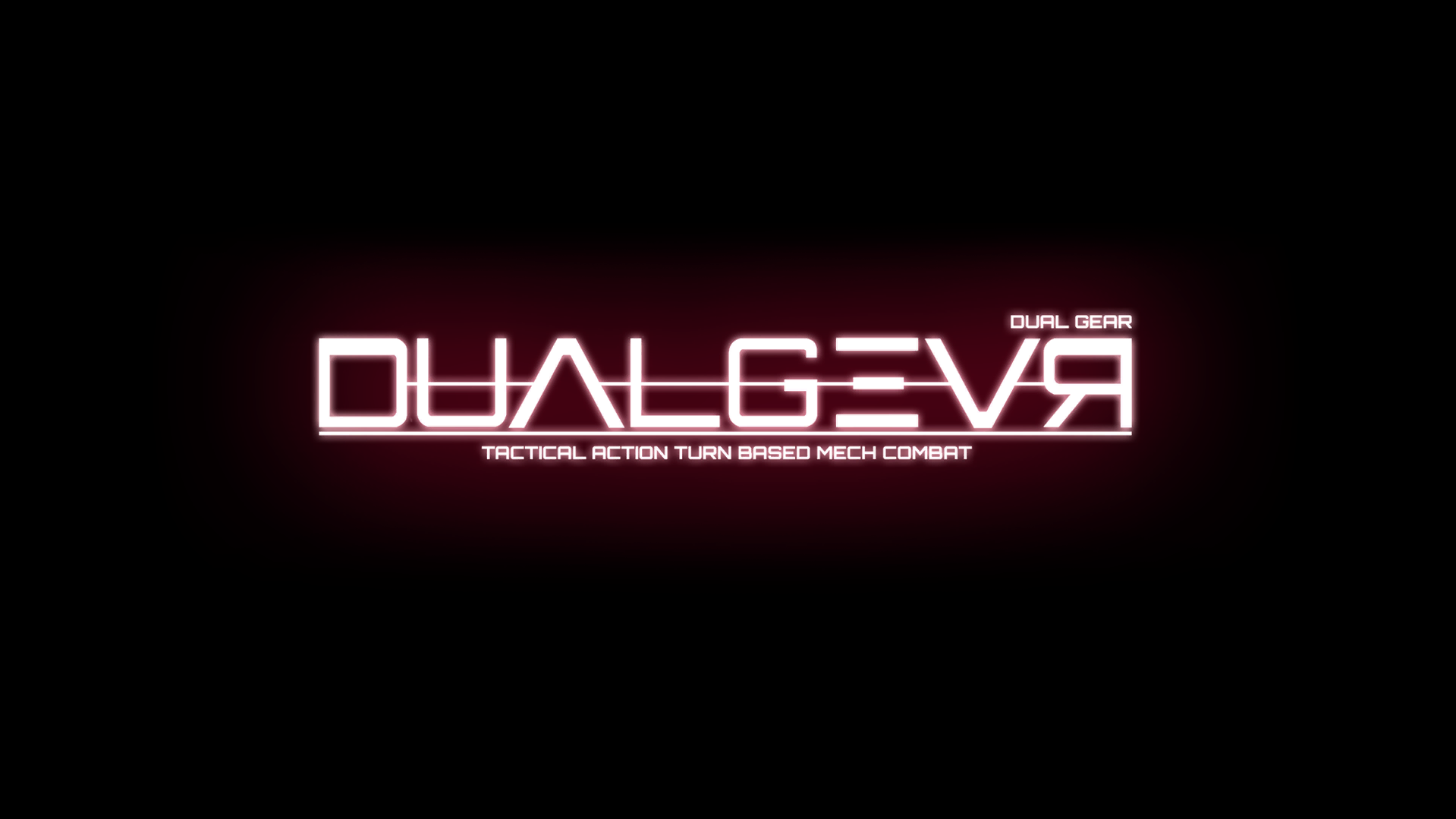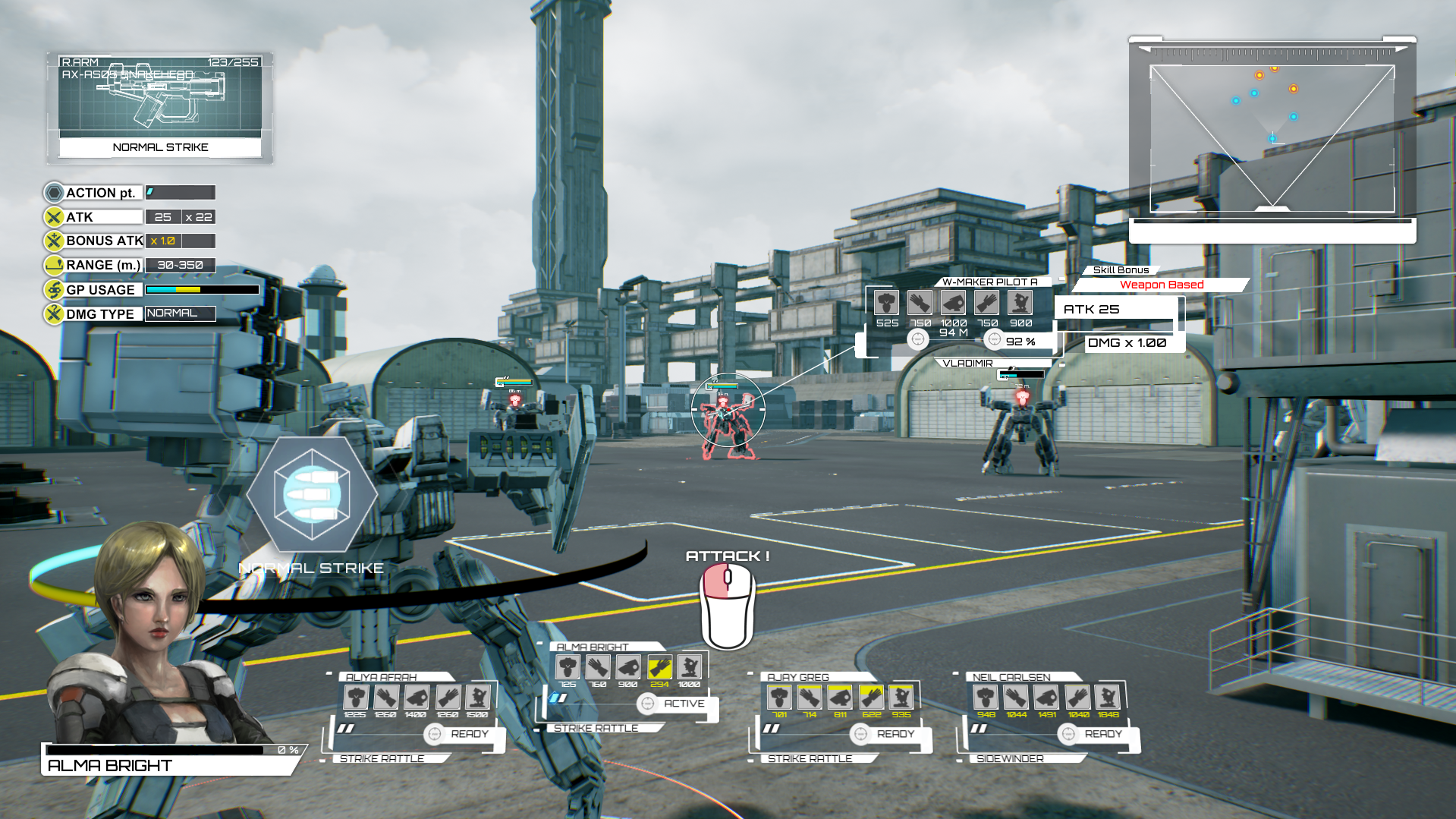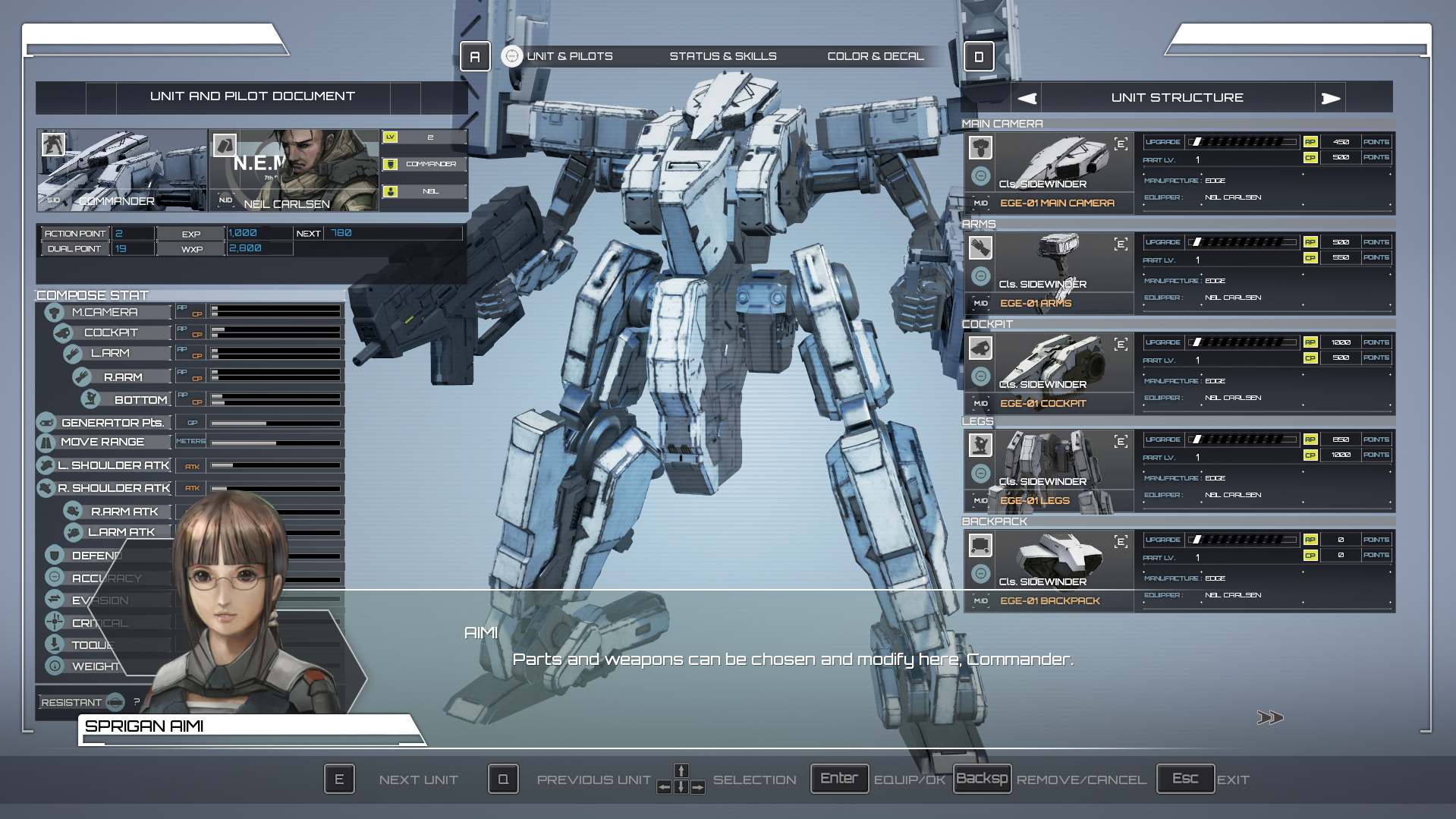
Back in 1995, Squaresoft released the first Front Mission game, but it wasn't until the PlayStation era that it became more popular. In these futuristic games, you control piloted mechas known as Wanzers to defeat your foes and acquire better parts to customize your unit, while also taking part in a huge war between the United States of the New Continent (USN) and the Oceania Cooperative Union (OCU).
Fast-forward to 2020 and the Front Mission franchise is still alive, but it's nowhere near as popular as it was in the late nineties. Dual Gear, on the other hand, is Orbital Speed Studio's first game, and it takes inspiration from the first Front Mission games. Can this new project offer us everything we loved about those old games... and more?
Turn-Based Battles and a Lot of Explotions

If you never played one of these games, allow us to explain how everything works. Dual Gear is a turn-based strategy game where you control several piloted mechas. Each robot has different available weapons, and your objective is to destroy every enemy unit before they finish you or render you unavailable to keep fighting. As you can see, the premise is really simple, but this being an RPG, you can expect a lot of customization options and min-maxing opportunities.
Dual Gear's protagonists are the members of the N.E.M.O.S 7th Division, but since the game is still on Early Access, the story is not available beyond the first missions, so the whole global conflict still remains kind of a mystery. Regardless, that's enough to realize how much potential both the story and the gameplay have, especially considering how good some old-school RTS mecha games are, and how much inspiration Dual Gear draws from them.
Take it as a little Easter egg, but one of the first cinematics shows the events leading to the war, with the 2020 pandemic appearing as one of the reasons for the installment of the mysterious Gaia Project—but don't worry, we beat the virus in 2022!
It Still Needs Polishing, but It Works
One of our issues with this game is how gray it all looks, and—in our humble opinion—how much work the textures need. So far, we can only test 3 stages, but sadly, they all are incredibly dull, empty, and generic. At the same time, the cel-shading could also benefit from better textures, as all mechas look carboard-made. Of course, it's on Early Access stage, so a lot of things will improve over time, but that's why we're being optimistic. If this game enhances its graphics, it could easily become a cult classic, because the gameplay definitely has enough complexity and new features to keep you playing, even if that means you have to repeat the same 3 stages over and over again.
In Dual Gear, both your movement and attack options depend on your energy gauge. Unlike other games, this one allows you to fire and/or walk freely around the map as long as you have enough energy, something that clearly brings more strategy upon the table. Another cool addition is the aiming feature, so instead of randomly attacking your enemies, you can focus on specific parts of their machine to destroy them faster. Naturally, that means they can do the same to you, so you have to be even more careful than in other games!
Your Mecha, Your Choice

Once you finish the first mission, you gain access to Mother Base, the place where you can customize all units and pilots. Other than the frame, each unit has a camera (aka the head), two arms, two legs, a cockpit, and a backpack. From the get-go, you can change the color of these parts to better suit your fashionable needs, but you can also buy new parts using the credits you earn after every mission.
With new parts, you can improve your main stats, but buying new weapons could not only mean more damage but more versatility, too. Some units can only fire from a distance, like Alma Bright's, while some others only use melee attacks, like Kenji Iwasawa's. That's why buying new parts and customizing your Dual Gears is a core mechanic, not only because it gives them more personality, but also because they become more useful and lethal in combat.
Final Thoughts
It's a shame that only the first missions and basic features of Dual Gear are available, but knowing that there's still a lot of time and work ahead is precisely what keeps our expectations so high.
After two Indiegogo crowdfunding campaigns, Dual Gear's Early Access stage is now available on Steam, and it will come to Xbox One and PlayStation 4 sometime in the future. You can play the PC Pre-Alpha Demo for free!

